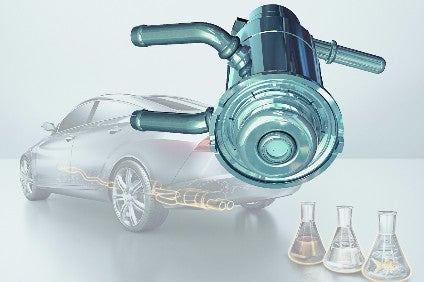
Continental has introduced a new AdBlue dosing system for diesel engines fitted with SCR (selective catalytic reduction) technology for exhaust gas after treatment and said the system performed particularly well in recent independent tests.
The supplier noted that exhaust gas measurements during the type approval of new cars will also be taken under real driving conditions from 1 September, 2017 and, for nitrogen oxide emissions from diesel engines in particular, “significant differences have emerged between laboratory values and real driving emissions (RDE)” so exhaust gas tests on diesel vehicles are increasingly being run under real driving conditions.

Discover B2B Marketing That Performs
Combine business intelligence and editorial excellence to reach engaged professionals across 36 leading media platforms.
German magazine Auto Motor und Sport recently fitted four diesel engines with a PEMS (portable emissions measurement system) in order to calculate their NOx emissions while Deutsche Umwelthilfe (DUH) put 36 diesel models under the microscope. In both tests, most vehicles exceeded the RDE NOx limit, due to come into effect in 2017, of 168 mg/km.
However, the tests also showed very ‘clean’ diesels are already on sale. A “new model from a premium German manufacturer” fell below even the laboratory tests’ applicable limit of 80 mg/km on the road by almost 50% and that model had Continental’s new AdBlue dosing system which will made its production debut with that model.
“We are delighted to have been able to play our part in developing these pioneering new engine families,” said Wolfgang Breuer, head of the engine systems business unit at the Continental powertrain division. “The latest test results in real driving conditions clearly show that diesel technology and its low CO2 emissions can play an important role in reducing greenhouse gases when combined with effective exhaust gas after treatment.”
The four-cylinder diesel in the test winning vehicle uses SCR for exhaust after treatment during which an injector adds the AdBlue urea to the exhaust pipe, thus triggering a chemical process – selective catalytic reduction – in the catalytic converter. The result is a significant reduction in nitrogen oxide emissions.
Separate ECU, water-cooled injector, and fluid diagnostics
Continental provides the complete AdBlue dosing system for the unnamed automaker’s new engine family. Main components are the injector, a tank flange module, which includes the pump, as well as its own electronic control unit. This ECU, which is coupled with the engine control unit, controls the injector, regulates the pump pressure and diagnoses the fill level of the additive tank.
“This model is one of the first systems on the car market to measure the urea concentration of the fluid in the AdBlue tank. With the help of the urea concentration sensor on the tank flange module, the system detects whether the tank has been filled with water or a solution with a concentration that is too low,” said Markus Distelhoff, of Continental’s fuel & exhaust management unit in the powertrain division.
In this vehicle, the SCR system is installed directly on the engine, to ensure optimum operating temperatures for the after treatment – not in the underbody area. This means the injector must be able to handle ambient temperatures of 200°C and above which is where Continental’s first water-cooled AdBlue injection valve comes into play. The dosing system is also protected against the cold. Because the urea solution freezes at temperatures below -11°C, the tank flange module and the injector are connected by a heatable line which is also offered by Continental’s ContiTech division.






